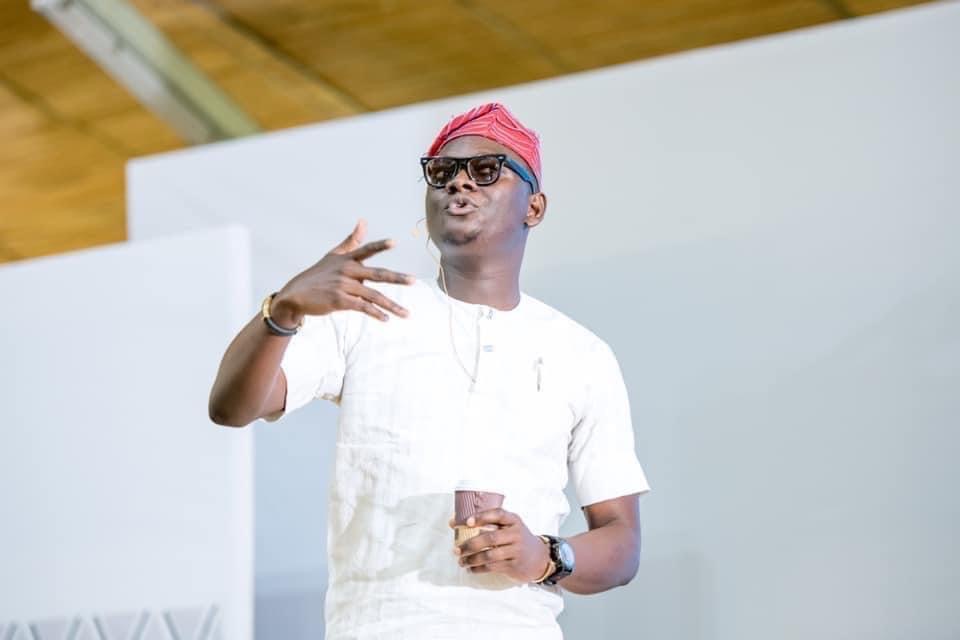The imperatives of fuel subsidy removal By Babajide Fadoju
The imperatives of fuel subsidy removal
By Babajide Fadoju
 During his inauguration speech, the president of the federal republic of Nigeria, Asiwaju Bola Ahmed Tinubu announced that the subsidy regime has come to an end. It got the whole nation fired up – queues returned to filling stations across the country, public affairs analysts and economists went on tirades about whether it was the right or wrong thing to do at that specific time.
During his inauguration speech, the president of the federal republic of Nigeria, Asiwaju Bola Ahmed Tinubu announced that the subsidy regime has come to an end. It got the whole nation fired up – queues returned to filling stations across the country, public affairs analysts and economists went on tirades about whether it was the right or wrong thing to do at that specific time.
Some have claimed that the path towards subsidy removal requires careful planning, effective communication, and collaboration among stakeholders. It is crucial for the government to address public concerns, provide support for vulnerable population, and promote renewable energy adoption.
The journey towards Nigerian fuel subsidy removal, although announced by the president didn’t start from him. That is common knowledge by now.
As the president announced, petrol subsidy is gone. Adjusting to the new normal is crucial. It is important to note that the process of subsidy removal will be accompanied by measures to mitigate the impact on the most vulnerable segments of society. These will take the form of targeted cash transfers, investment in social welfare programs, and the promotion of renewable energy that can help alleviate the burden and create a more equitable transition.
Such moves are already underway; the enhancement of the local refining capacity will reduce reliance on imported petroleum products and mitigate the impact of fluctuating global oil prices. By investing in the modernization and expansion of domestic refineries, the country can enhance its self-sufficiency in meeting fuel demands and reduce the need for subsidies. The Dangote refinery is an important stopgap in this regard.
The government will be ramping up efforts in investment into social welfare programs.
Enhancing social welfare programs, such as healthcare, education, and poverty alleviation initiatives, can help improve the overall well-being of the population. By re-allocating funds that would have been previously allocated to fuel subsidies, the government can invest in these programs to provide essential services and support. These services will help to cater to the most vulnerable in the society.
There will also be investment in alternative and renewable energy such as solar and wind power, reduce dependence on fossil fuels and mitigate the impact of fuel subsidy removal. By promoting clean energy solutions, Nigeria can diversify its energy mix, create jobs in the renewable energy sector, and contribute to a greener and more sustainable future.
In the same vein, promoting and developing efficient and affordable public transportation systems can help alleviate the burden on individual commuters. By investing in public transportation infrastructure and improving the quality and accessibility of services, the government can encourage people to rely less on private vehicles, reducing fuel consumption and easing the impact of subsidy removal.
In conclusion, the Nigerian fuel subsidy removal case is complex and multifaceted. While the subsidy has aimed to provide affordable fuel for the population, its sustainability and economic implications cannot be ignored. By removing the subsidy and implementing alternative measures, Nigeria can free up resources for critical sectors, reduce corruption, promote market efficiency, and drive sustainable economic growth. By doing so, the country can embark on a journey towards a more resilient, sustainable, and prosperous future.
The case for subsidy removal is a serious and considerate one. This is undoubtedly challenging, but it presents an opportunity for the country to address long-standing issues, foster economic growth, and promote sustainable development. By implementing effective policies, embracing alternative energy sources, and engaging with the public, Nigeria can pave the way for a more prosperous and sustainable future.
-Fadoju, a public affairs analyst wrote from Lagos
- Mostbet Giris: Yeni Uyelik Avantajlari
- Bridge House College ex-student, Cherish Markson, shines in UK University
- Oba Olakulehin Experiences: Asset to Ibadanland -Senator Buhari felicitates with 43rd Olubadan, Ibadan indigene, others
- Oba Olakulehin Experiences: Asset to Ibadanland -Senator Buhari felicitates with 43rd Olubadan, Ibadan indigene, others
- Florence Ajimobi mourns late Oyo rep member, Akinremi
- Ralph Smat on N100billion Bond: Politics aside, Oyo is set for eternal financial bankruptcy and economic bondage.| Adebayo Adelabu
- Eunice Friday. on I Want To Innovate On Use Of Aso-Oke, Fabrics, Others ~ Helidiiam CEO| Abeke Mercy Ejibunu
- Ilesanmi Mayowa on I Want To Innovate On Use Of Aso-Oke, Fabrics, Others ~ Helidiiam CEO| Abeke Mercy Ejibunu
- Oguntuyi Daniel O. on I Want To Innovate On Use Of Aso-Oke, Fabrics, Others ~ Helidiiam CEO| Abeke Mercy Ejibunu
- OLUWAKAIYEKUNMI on I Want To Innovate On Use Of Aso-Oke, Fabrics, Others ~ Helidiiam CEO| Abeke Mercy Ejibunu
- July 2024
- May 2024
- April 2024
- March 2024
- February 2024
- January 2024
- December 2023
- November 2023
- October 2023
- September 2023
- August 2023
- July 2023
- June 2023
- May 2023
- April 2023
- March 2023
- February 2023
- January 2023
- December 2022
- November 2022
- October 2022
- September 2022
- August 2022
- July 2022
- June 2022
- May 2022
- April 2022
- March 2022
- February 2022
- January 2022
- December 2021
- November 2021
- October 2021
- September 2021
- August 2021
- July 2021
- June 2021
- May 2021
- April 2021
- March 2021
- February 2021
- January 2021
- December 2020
- November 2020
- October 2020
- September 2020
- August 2020
- July 2020
- June 2020
- May 2020
- April 2020
- March 2020
- February 2020
- January 2020
- December 2019
- November 2019


